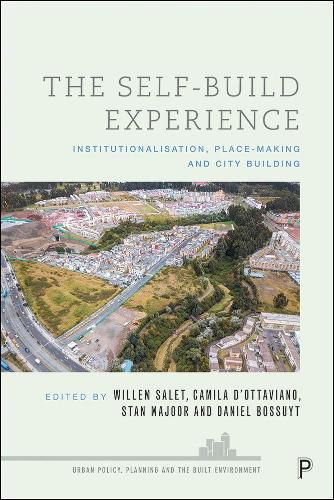Readings Newsletter
Become a Readings Member to make your shopping experience even easier.
Sign in or sign up for free!
You’re not far away from qualifying for FREE standard shipping within Australia
You’ve qualified for FREE standard shipping within Australia
The cart is loading…






Spanning multiple countries across South America, Europe and Africa, this book uses an international comparative perspective to investigate the phenomenon of self-building for low and middle income groups in urban areas, examining the tensions between regulation and self-regulatory initiatives.
Using a broad international comparative perspective that spans multiple countries across South America, Europe and Africa, contributors explore resident-led self-building for low and middle income groups in urban areas. Although social, economic and urban prosperity differs across these contexts, there exists a recurring tension between formal governance and self-regulation in building practices.
Contributors examine the multi-faceted regulation dilemmas of self-building under the conditions of modernisation and consider alternative methods of institutionalisation, place-making and urban design, through reconceptualising the moral and managerial ownership of the city. Innovative in scope, this book provides an array of globalised solutions for navigating regulatory tensions in order to optimise sustainable development for the future.
$9.00 standard shipping within Australia
FREE standard shipping within Australia for orders over $100.00
Express & International shipping calculated at checkout
Spanning multiple countries across South America, Europe and Africa, this book uses an international comparative perspective to investigate the phenomenon of self-building for low and middle income groups in urban areas, examining the tensions between regulation and self-regulatory initiatives.
Using a broad international comparative perspective that spans multiple countries across South America, Europe and Africa, contributors explore resident-led self-building for low and middle income groups in urban areas. Although social, economic and urban prosperity differs across these contexts, there exists a recurring tension between formal governance and self-regulation in building practices.
Contributors examine the multi-faceted regulation dilemmas of self-building under the conditions of modernisation and consider alternative methods of institutionalisation, place-making and urban design, through reconceptualising the moral and managerial ownership of the city. Innovative in scope, this book provides an array of globalised solutions for navigating regulatory tensions in order to optimise sustainable development for the future.